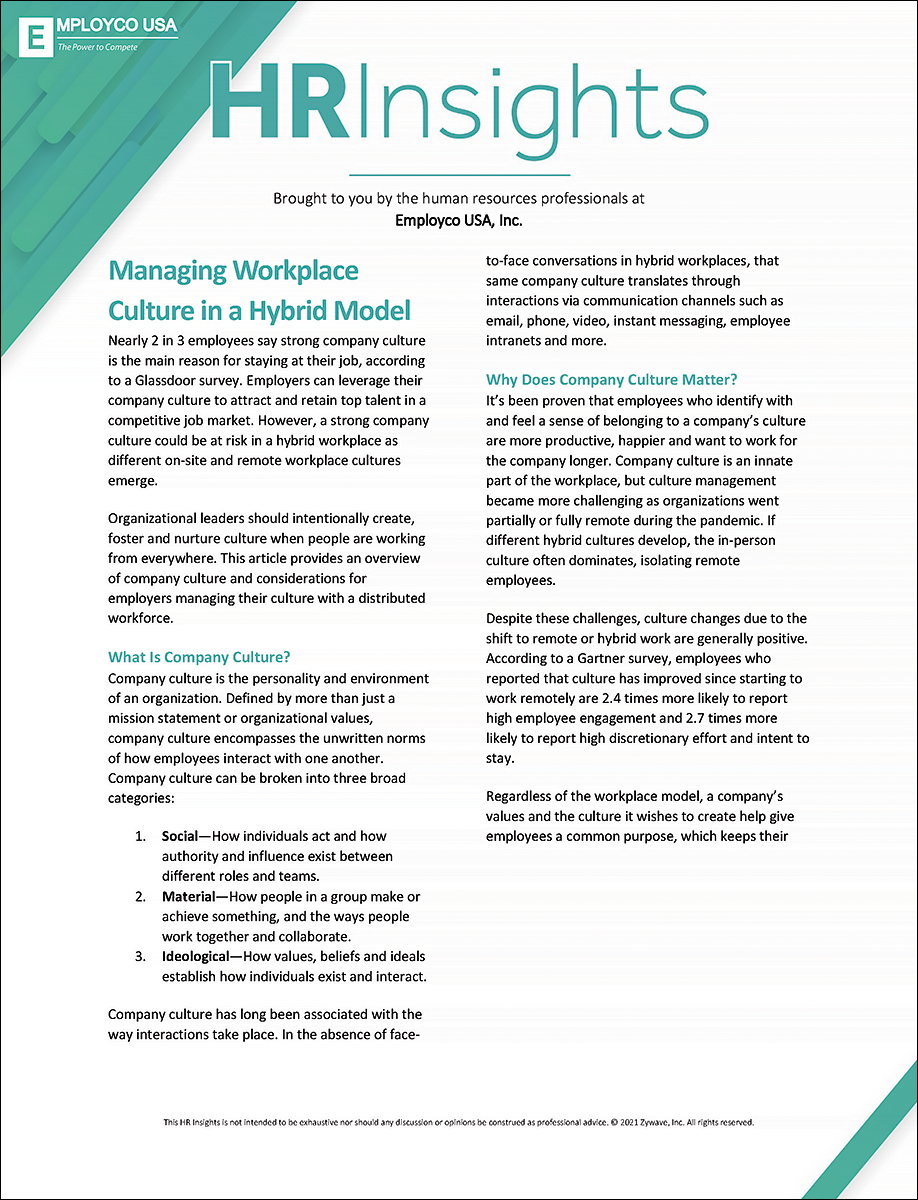
Nearly 2 in 3 employees say strong company culture is the main reason for staying at their job, according to a Glassdoor survey. Employers can leverage their company culture to attract and retain top talent in a competitive job market. However, a strong company culture could be at risk in a hybrid workplace as different on-site and remote workplace cultures emerge.
Organizational leaders should intentionally create, foster and nurture culture when people are working from everywhere. This article provides an overview of company culture and considerations for employers managing their culture with a distributed workforce.
What Is Company Culture? Company culture is the personality and environment of an organization. Defined by more than just a mission statement or organizational values, company culture encompasses the unwritten norms of how employees interact with one another. Company culture can be broken into three broad categories:
- Social—How individuals act and how authority and influence exist between different roles and teams.
- Material—How people in a group make or achieve something, and the ways people work together and collaborate.
- Ideological—How values, beliefs and ideals establish how individuals exist and interact.
Company culture has long been associated with the way interactions take place. In the absence of face-to-face conversations in hybrid workplaces, that same company culture translates through interactions via communication channels such as email, phone, video, instant messaging, employee intranets and more.
CONTINUE READING – Click the following link to read the entire HR Insights article: Managing Workplace Culture in a Hybrid Model
